News
UK bid to hide Gash reports challenged in House of Lords
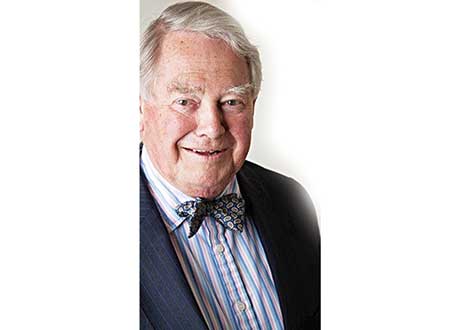
… UNHRC avoids query whether new probe unit can seek those dispatches from Colombo
By Shamindra Ferdinando
Following the UK’s refusal to accede to Sri Lanka’s recent request for disclosing British wartime defence attaché Lt. Col. Gash’s dispatches from Colombo, Conservative member Lord Naseby has sought an explanation as regards the procedures followed by the Defence attachés in gathering and submitting information to Her Majesty’s Government.
Authoritative Sri Lankan government sources told The Island that the UK in spite of being a member of the Geneva-based United Nations Human Rights Council (UNHRC) had taken extraordinary steps to keep Gash dispatches under wraps.
Sources appreciated Lord Naseby’s efforts to unravel the truth in the face of a new high-profile inquiry initiated by the UNHRC.
In response to Sri Lanka’s request made in early March, the UK faulted Gash for not obtaining independent confirmation of reports he had sent to the Foreign, Commonwealth and Development Office (FCDO) during the final phase of the Vanni offensive, only after Sri Lanka sought their release!
Sri Lankan government sources pointed out that the UK never questioned the legitimacy of its defence attaché during the conflict till over a decade after the end of the war.
The following are the questions tabled by Lord Naseby at House of Lords recently: (i) To ask Her Majesty’s Government what criteria they used to assess the credibility of evidence reports they have received which related to the situation in Sri Lanka during the civil war in that country between 1 January and 18 May 2009; and whether it has ever been their practice to accept reports from unnamed sources (ii) To ask Her Majesty’s Government whether the information contained in dispatches written by UK defence attachés must be independently verified before submission; if so, whether it is standard practice to ensure that such attachés are briefed to that effect; and if so, what record, if any, they hold of Lieutenant Colonel Gash, being so briefed (iii) To ask Her Majesty’s Government what sources they used to inform their assessment of the situation in Sri Lanka during the civil war in that country between 1 January and 18 May 2009 and finally (iv) To ask Her Majesty’s Government, further to the dispatches written by Lieutenant Colonel Gash, the former defence attaché of the British High Commission in Sri Lanka about events in that country between 1 January and 18 May 2009 relating to the civil war, whether they consider all reports by UK military attachés and diplomats to be evidence based-assessments.
At the recently concluded 46th session of the UNHRC, the UK in its capacity as Sri Lanka Co-Chair led the offensive for the setting up of special unit at a cost of USD 2.8 mn to probe Sri Lanka accountability issues.
Sri Lanka requested the UK to handover Gash dispatches to the UNHRC in the wake of the proposal to set up a special unit to ‘collect, consolidate, analyze and preserve information and evidence’ in respect of Sri Lanka. The unit is also meant for the development of required strategies to deal with the country in case of gross violations of human rights or serious violations of international humanitarian law.
Meanwhile, The Island on April 06, 2021, having obtained prior sanction submitted the following question in respect of the ‘Oral statement of programme budget implications arising from draft resolution A/HRC/46/L.1/Rev.1 of the Human Rights Council,’: (i) Is there provision for the proposed unit set up to gather evidence, information et al to ask for British HC dispatches from Colombo (January-May 2009) or diplomatic cables from any other UN member state? (ii) What remedial measures Geneva can resort to in case governments decline to cooperate?”
In spite of repeated reminders Geneva didn’t respond to The Island query.
The month-long Geneva sessions ended on March 23, with the 47-member council adopting a fresh accountability resolution with 22 countries voting for, 11 against and 14 abstaining.
“We strongly believe those dispatches from Gash can facilitate Geneva investigations. However, the British, despite repeatedly assuring us of longstanding friendship denied credible information in their possession,” a government source familiar with accountability matters, said.
After Gash’s departure from Colombo, the UK discontinued having a resident Defence Advisor here. Instead, New Delhi-based Defence Advisor looked after matters pertaining to Sri Lanka for nearly a decade. However, in January 2019, the UK re-appointed Colonel David Ashman as their resident Defence Advisor in Colombo.
Sources pointed out that despite Lord Naseby’s disclosure of a section of the Gash reports in Oct 2017, Sri Lanka refrained from requesting examination of the dispatches till March 2021.
Gash countered the primary UN allegation (Panel of Experts’ report issued in March 2011 that the Sri Lankan military massacred 40,000 civilians. Gash estimated the number of deaths at 7,000 to 8,000, including LTTE combatants. His assessment largely tallied with a confidential UN survey (Aug 2008-May 13, 2009) that placed the number of dead at 7,721.
Sources said that the UK had taken contradictory positions as regards Gash dispatches at the hearings at the UK Information Commission following Lord Naseby’s initial bid compel disclosure and when Sri Lanka recently requested for the full disclosure of relevant dispatches. The UK owed an explanation whether those dispatches weren’t made available to POE and the Report of the OHCHR Investigation on Sri Lanka (OISL) also on the grounds they weren’t credible.
News
Bid to include genocide allegation against Sri Lanka in Canada’s school curriculum thwarted
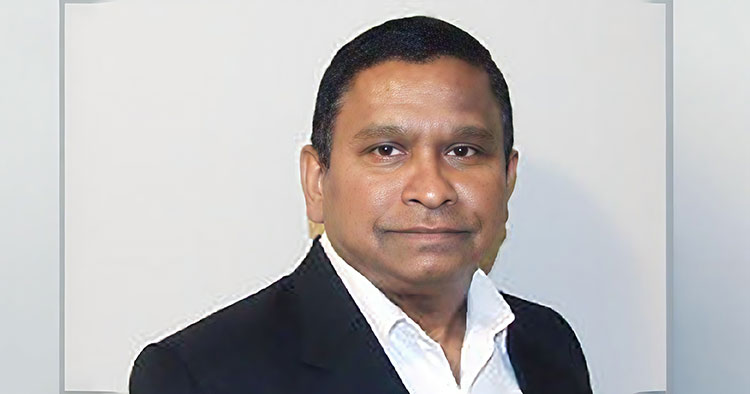
Dr. Neville Hewage yesterday said that the Ontario Superior Court of Justice, the Ontario Court of Appeal and the Supreme Court of Canada had determined that alleged Tamil genocide hadn’t taken place in Sri Lanka.
The academic, who successfully moved the Canadian courts, said that, therefore, the much-touted Tamil Genocide Education Week Act (TGEWA), in terms of the ruling given by the Ontario Court of Appeal and confirmed by the Supreme Court of Canada, is not within provincial Jurisdiction Education under Canada’s Constitution. Dr. Hewage said so in response to The Island query.
Declaring that the Canadian ruling was a huge victory for Sri Lanka, constantly harassed by various interested parties over unsubstantiated war crimes allegations, Dr. Hewage emphasised that alleged Tamil genocide couldn’t be in the school curriculum.
The Canadian parliament in May 2022 declared May 18 as Tamil Genocide Remembrance Day, thereby recognising the massacre of Tamils during the last phase of the war.
Responding to another query, Dr. Hewage valued the legal action at approximately $350,000 while denying any backing from the Sri Lankan government. “I haven’t received any funding from the government,” Dr. Hewage said, appreciating the backing provided by the Canadian legal team.
Adjunct Professor of the Law and Justice Department Laurentian University. Sudbury, Ontario, Canada Hewage said: “I did my own legal work which cost me only time and the expenses for filing.”
Dr. Hewage dismissed attempts made by the pro-LTTE lobby to propagate the lie that the Supreme Court of Canada had dismissed the challenge to Bill 104 aka TGEWA, thereby allowing education and commemorative events/efforts.
Asked to explain, Dr. Hewage pointed out that although the Ontario Superior Court of justice, the Ontario Court of Appeal and the Supreme Court of Canada had determined that Tamil genocide did not take place in Sri Lanka, the Ontario Superior Court of Justice had ruled that TGEWA is valid under the Constitution Act, 1867, s 93 Education. Recalling that the first application had been filed against the Attorney General of Ontario on June 06, 2021, Dr. Hewage said that he had moved the Ontario Court of Appeal on July 22, 2022 and that court ruled that the TGEWA was not in line with the relevant Act.
The Appeal Court had concluded that TGEWA was not within the provincial jurisdiction as outlined in the Constitution Act, 1867, s. 93 Education, Dr. Hewage said.
The bottom line was that Tamil genocide couldn’t be included in their school curriculum, Dr. Hewage said. The Canadian verdict couldn’t have come at a better time for Sri Lanka, troubled by UK sanctions on Admiral of the Fleet Wasantha Karannagoda, retired Generals, Shavendra Silva and Jagath Jayasuriya as well as one-time LTTE Ampara-Batticaloa commander Vinayagamoorthy Muralitharan alias Karuna over war crimes allegations.
Dr. Hewage said that he had appealed to the Supreme Court on Nov 11, 2024 as he feared that the Ontario Court of Appeal could be reversed in case some other pro-LTTE party moved court and may declare plausible Tamil genocide. The academic stressed that throughout their campaign, the Sri Lankan government had not extended any help.
At the time, Dr. Hewage initiated the legal process Gotabaya Rajapaksa was the President. By the time Dr. Hewage appealed to the Supreme Court of Canada, the National People’s Power (NPP) had gained power.
The development with regard to TGEWA has taken place in the wake of Jaffna-born Gary Anandasangaree receiving appointment as Justice Minister and Attorney-General of Canada and Crown-Indigenous Relations and Northern Affairs Minister. He has been campaigning against alleged war crimes in Sri Lanka.
Dr. Hewage said that some media and other interested parties had been working overtime to deceive the people by misinterpreting the Canadian Supreme Court decision.
The Supreme Court had confirmed the Ontario Court of Appeal’s decision, and no further inquiries were required, Dr. Hewage said, adding that the pro-LTTE lobby was quite upset as both the Superior Court of Justice and the Appeal Court of Ontario had determined that Tamil genocide did not take place in Sri Lanka. “Therefore, the Supreme Court of Canada will not further inquire into the Tamil genocide claim and as such the Appeal court decision will stand,” Dr. Hewage said.
by Shamindra Ferdinando
News
UK sanctions on former military top brass biased, unjustifiable: Ex-PM
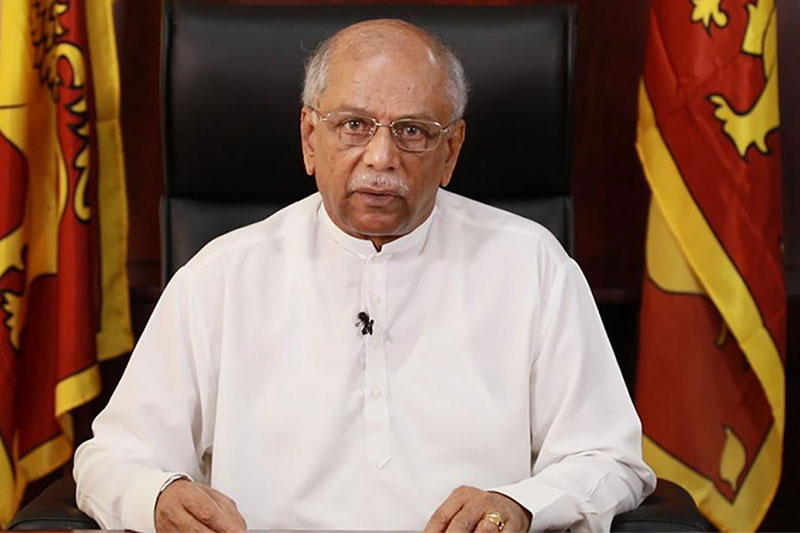
Former Prime Minister and leader of the Mahajana Eksath Peramuna (MEP) Dinesh Gunawardena has alleged that the UK sanctioning retired top brass and ex-LTTE commander is biased, unjustifiable and a blatant interference in an internal affair of Sri Lanka.
The following is the text of statement issued by former parliamentarian Gunawardena: “The United Kingdom Government recently imposed sanctions on former head of the Sri Lankan Armed Forces Shavendra Silva, former Navy Commander Wasantha Karannagoda, former Commander of the Sri Lankan Army Jagath Jayasuriya and Vinayagamoorthy Muralitharan alias Karuna Amman.
The imposition of sanctions on three former commanders of Sri Lankan armed forces over alleged human rights violations during the conflict between the terrorist outfit Liberation Tigers of Tamil Eelam (LTTE) and the armed forces by the UK is biased, unjustifiable action and a blatant interference on an internal affair of Sri Lanka.
It is most regrettable that the UK thought it fit to impose sanctions that are not based on any transparent investigation or legal proceedings. Instead, they reflect the selective application of international pressure on Sri Lanka, targeting those who played key roles in Sri Lanka’s military victory against the most ruthless terrorist organization, which is banned by many countries, including the UK.
I wish to reiterate that the people of Sri Lanka have the highest respect for the sacrifices made by the military and the Commanders of armed forces and they would always stand by them against any unjustified attempts of prosecution or slander as their valiant fight against terrorists have ensured long-lasting peace in Sri Lanka.
We urge the United Kingdom to withdraw the one-sided sanctions in the interest of our long-standing bilateral relations and norms.”
News
Modi’s visit: TN poaching issue on the agenda
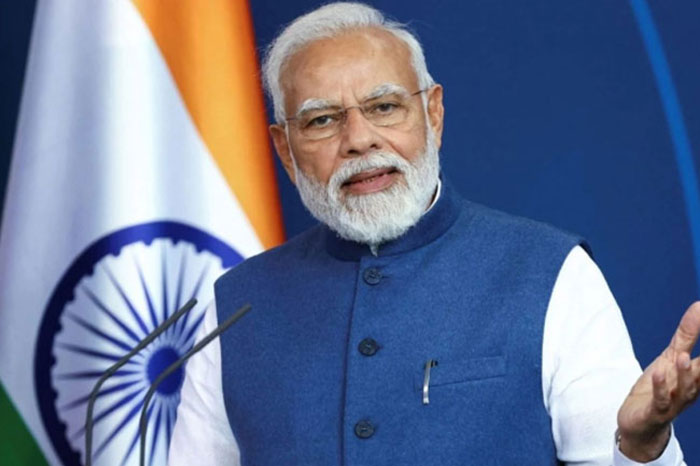
Indian Foreign Secretary Vikram Misri has said that the arrest of Indian fishermen by the Sri Lankan Navy would be taken up at the forthcoming Indian Premier Narendra Modi’s visit to Colombo.Responding to a query posed at a special media briefing held in New Delhi on March 28 on Modi’s visits to Thailand and Sri Lanka in the first week of April, Misri said: We have throughout been in very close contact with Sri Lankan authorities at all levels and in practically every meeting with Sri Lanka, this issue is taken up very, very forcefully by our side. And our central message has always been that these are issues that should really be seen from the humanitarian and the livelihood concerns lens.”
Misri said: “On the fishermen’s issue, this is something that is a long-standing issue. It is also something whose origin lies in certain arrangements that were arrived at many years ago, in the mid-70s when the international maritime boundary line between India and Sri Lanka was agreed by the then authorities, both at the central and the state level. And, there were formal agreements that were signed with regard to respective rights in this particular area.
Since then, of course, on grounds of alleged crossing of this line by fishermen from our side, there are arrests on the Sri Lankan side and then a process has to be gone through.
We have throughout been in very close contact with Sri Lankan authorities at all levels and in practically every meeting with Sri Lanka, this issue is taken up very, very forcefully by our side. And our central message has always been that these are issues that should really be seen from the humanitarian and the livelihood concerns lens.
There are agreements that have been arrived at from time to time between Indian and Sri Lankan authorities on how to handle this issue. There is a formal mechanism as well of a joint working group on fisheries between the two sides. I think the most recent meeting was held in October last year. There is also a mechanism for fishermen’s associations from the two sides to work.
Our effort is to continue to resolve these issues, find mutual agreement on these issues. Of course, our Mission in Colombo and our Consulate in Jaffna remain very closely involved with these issues. Anytime there are people who are affected, we extend legal as well as other kinds of assistance to them. Sometimes there is medical assistance that is required. We also facilitate the repatriation as early as possible of released fishermen from Sri Lanka to India.
One other thing that we have always focused on with regard to this issue in our discussions with Sri Lanka is the need to avoid the use of force under all circumstances. Therefore, we feel that both sides understand the need to continue our ongoing dialogue, our constructive engagement to eventually achieve long lasting and mutually acceptable solutions to the issue. I have no doubt that the Prime Minister will raise issues related to the welfare of our fishermen during his meeting with the Sri Lankan President.”
-
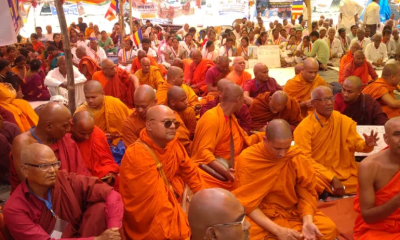
 Foreign News7 days ago
Foreign News7 days agoBuddhism’s holiest site erupts in protests over Hindu ‘control’ of shrine
-

 Features5 days ago
Features5 days agoCelebrating 25 Years of Excellence: The Silver Jubilee of SLIIT – PART I
-

 Business3 days ago
Business3 days agoAIA Higher Education Scholarships Programme celebrating 30-year journey
-

 Business5 days ago
Business5 days agoCEB calls for proposals to develop two 50MW wind farm facilities in Mullikulam
-

 Features5 days ago
Features5 days agoNotes from AKD’s Textbook
-

 News2 days ago
News2 days agoGnanasara Thera urged to reveal masterminds behind Easter Sunday terror attacks
-

 News1 day ago
News1 day agoComBank crowned Global Finance Best SME Bank in Sri Lanka for 3rd successive year
-

 Sports1 day ago
Sports1 day agoSri Lanka’s eternal search for the elusive all-rounder











